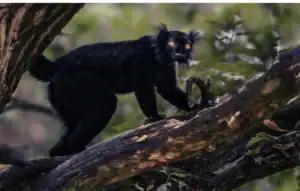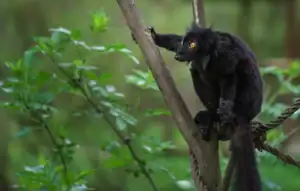Tsaratanana National Park was established in 1927 to protect a remote rainforest wilderness in the northern highlands of Madagascar. Recognized as a Key Biodiversity Area and an Alliance for Zero Extinction site, the park is home to 9 species of lemur, including the Endangered Black Lemur Eulemur macaco. The park is under management of Madagascar National Park (MNP).

The park is experiencing severe deforestation, largely due to its isolation and the difficulty of access, which has limited protection efforts for nearly a century. Even today, reaching the park requires a two-day walk. While its remoteness once offered natural protection, it has now become its greatest vulnerability. The area has become a major hub for illicit cannabis cultivation and unregulated gold mining, leading to increased instability and danger.
These activities have created serious security concerns, preventing park staff from safely entering and monitoring the area. Tragically, the park has already lost 31% of its forest cover, with an average annual deforestation rate of 1.7%—equivalent to about 3,000 acres of rainforest destroyed each year.
According to the Madagascar Protected Area Outlook 2024, the park is now classified as Critically Endangered (CR).
In response to the critical situation, Conservation Allies has begun supporting Madagascar National Parks (MNP) in launching a major campaign of mixed brigade patrols within Tsaratanana. These efforts are being carried out in collaboration with military and police forces to ensure the safety of MNP rangers and reinforce law enforcement in the area.

Significant progress has already been made, including the confiscation of large quantities of cannabis—most notably a single seizure of 350 kg—and the arrest and imprisonment of several individuals. These actions mark a crucial step toward restoring law and order in the park.
While this marks the beginning of a meaningful response to a long-standing crisis, much work remains to be done. Our goal is to secure the park in time for its 100th anniversary in 2027 and to safeguard its future for generations to come.




